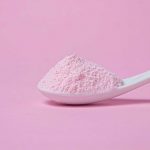Cocaine is a popular stimulant drug that makes you feel energized and alert. It also poses serious health risks, including addiction and overdose. Some drug dealers lace cocaine with fentanyl, making it extra dangerous.
Recently, Boston has seen a spike in fentanyl-laced cocaine overdoses.
Fentanyl-Laced Cocaine In Boston
Within 24 hours between February 20th and 21st, 2023, Boston Emergency Medical Services responded to 11 drug overdoses involving cocaine.
Many of the calls came from Nubian Square, an area in the Roxbury neighborhood, though some calls came from other parts of Boston as well. Some of the overdoses were fatal.
On February 22nd, Boston Public Health Commission (BPHC) issued an advisory attributing the overdoses to the rise in fentanyl-laced cocaine. Fentanyl is a synthetic (human-made) opioid. Up to 50 times stronger than heroin, it’s the driving force behind the nation’s fatal overdose crisis.
Fentanyl, Cocaine, & Fatal Overdoses
In 2021, the Massachusetts Drug Supply Data Stream (MADDS) detected fentanyl in 12% of Boston’s cocaine samples.
Also, during the first six months of 2022, cocaine was present in 53% of the 1,043 opioid-related overdose deaths in Massachusetts. Fentanyl was present in 94% of them.
According to a 2019 Massachusetts study, people who fatally overdose on cocaine and opioids (including fentanyl) are usually slightly younger than people who overdose on opioids alone.
They are also more likely to be Hispanic or non-Hispanic Black, homeless, and recently released from jail, prison, or a hospital. They are less likely to have been recently released from drug rehab.
Why Lace Fentanyl With Cocaine?
Many drug dealers add fentanyl to cocaine to cut production costs, as fentanyl is relatively cheap to manufacture. Other buyers use fentanyl to give the buyer a stronger, more addictive high. In either case, they typically don’t tell the buyer their cocaine contains fentanyl.
Dangers Of Fentanyl-Laced Cocaine
As mentioned above, fentanyl poses a high risk of fatal overdose. In general, this risk is higher for cocaine users than for people who regularly use fentanyl or other opioids. That’s because many cocaine users have not developed a tolerance to opioids. As a result, even tiny amounts of fentanyl could kill them.
In addition, people who mainly use cocaine are less likely to carry naloxone. Naloxone (brand name Narcan) is a medication that blocks the effects of opioids. It can quickly reverse an opioid overdose.
Not all cocaine users will fatally overdose on fentanyl-laced cocaine. However, they could still develop fentanyl addiction. This disease makes you feel unable to stop using fentanyl. Other symptoms may include:
- frequent cravings for fentanyl
- mood swings
- loss of motivation
- loss of interest in activities once enjoyed
- tolerance (needing increasingly larger or more frequent doses of fentanyl to feel the desired effects)
- physical dependence (experiencing withdrawal symptoms, such as anxiety and nausea, when you don’t use fentanyl)
When left untreated, fentanyl addiction often leads to a fatal overdose.
Solutions
All Boston residents can take steps to fight the deadly effects of fentanyl-laced cocaine. First, know the signs of fentanyl overdose. These include:
- drowsiness
- smaller pupils
- pale, clammy, or bluish skin
- gurgling noises or vomiting
- slowed or stopped breathing
- slowed or stopped heartbeat
- loss of consciousness
If someone you know experiences these symptoms, call 911 right away, and administer naloxone. You can find naloxone at your local pharmacy or harm reduction center.
As you wait for emergency responders to arrive, stay with the person, and provide rescue breaths. If the person starts breathing on their own, place them on their side in the recovery position.
Fentanyl Test Strips
Also, if you or someone you know uses cocaine, get fentanyl test strips. These strips can detect fentanyl in cocaine and other drugs (such as heroin, methamphetamine, and Xanax). They’re available at harm reduction centers.
The BPHC is encouraging healthcare providers and outreach workers to distribute them as well. You can also get your drugs tested for fentanyl at BPHC’s Access, Harm Reduction, Overdose Prevention and Education Program (AHOPE).
While naloxone and fentanyl test strips reduce your risk of fentanyl overdose, they’re not always 100% effective. The only way to completely avoid fentanyl-laced cocaine is to stop using cocaine.
Cocaine Addiction Treatment
If you feel unable to do so, you may have cocaine addiction. In that case, seek help at an addiction treatment program. These inpatient and outpatient programs offer evidence-based treatments like medical detox, behavioral therapy, medication-assisted treatment, and support groups.
To learn more about treatment options for cocaine addiction or other substance use disorders, please reach out to Northeast Addictions Treatment Center. Our board-certified healthcare providers offer personalized, comprehensive care to help you or your loved one stay drug-free.
Sources
City of Boston — Boston Public Health Commission Issues Cocaine Advisory To Providers
Centers for Disease Control and Prevention — Fentanyl Facts
Commonwealth of Massachusetts — Navigating the New Stimulant Landscape: Consumer Experiences and Illicit Drug Supply Insights from the RACK and MADDS projects in Massachusetts
Massachusetts Drug Supply Data Stream (MADDS) — Drug Supply Update: Boston, MA





